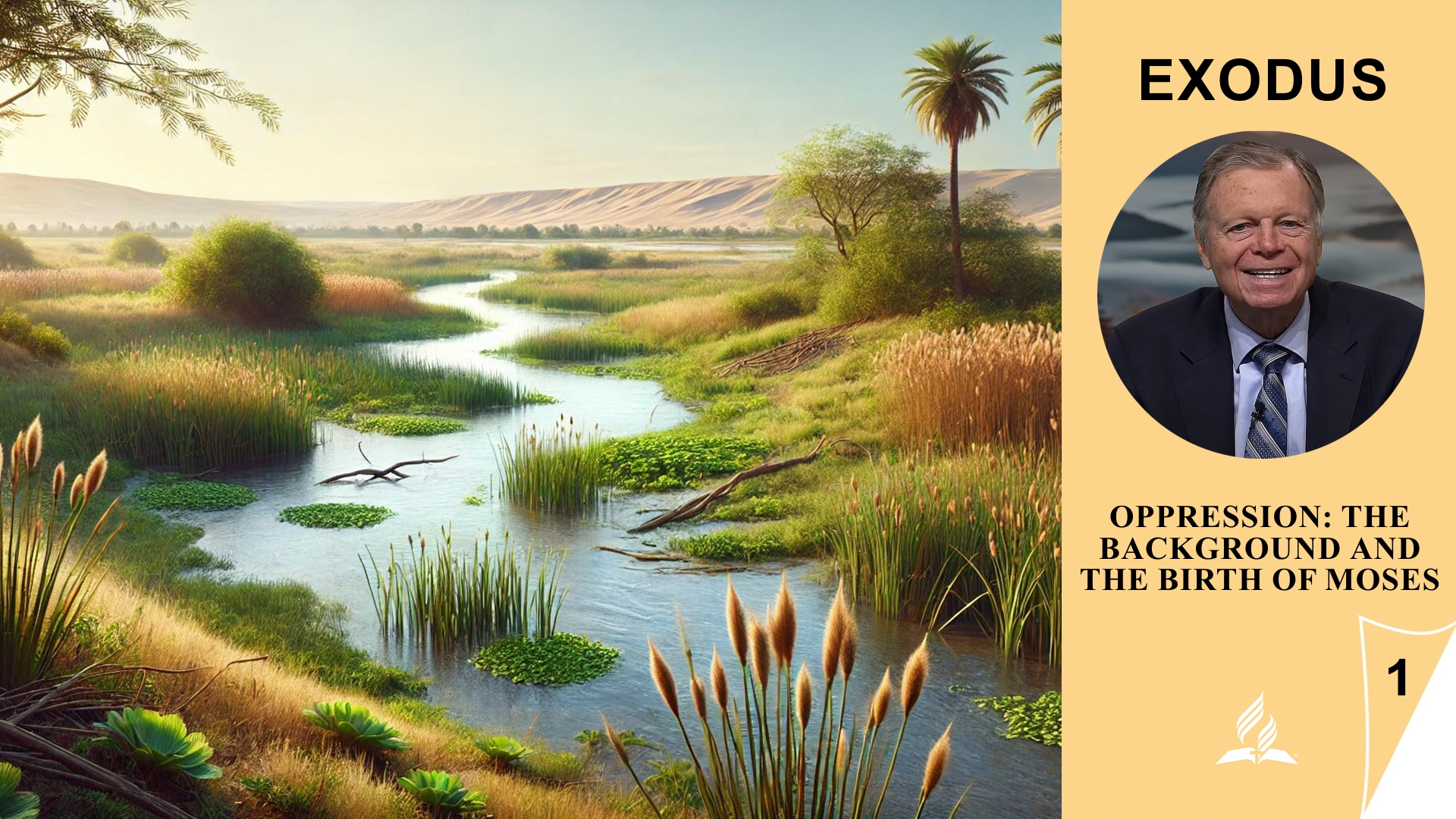 June 29, 2025
June 29, 2025
 DAILY BIBLE READING
DAILY BIBLE READING
 Exodus 24 – Covenant of Blood and Glory
Exodus 24 – Covenant of Blood and Glory
 God invites us to obedience, fellowship – and glory
God invites us to obedience, fellowship – and glory
══════════════════════════════════════════════
 Bible Text – Exodus 24 (KJV)
Bible Text – Exodus 24 (KJV)
1 And he said unto Moses, Come up unto the Lord, thou, and Aaron, Nadab, and Abihu, and seventy of the elders of Israel; and worship ye afar off.
2 And Moses alone shall come near the Lord: but they shall not come nigh; neither shall the people go up with him.
3 And Moses came and told the people all the words of the Lord, and all the judgments: and all the people answered with one voice, and said, All the words which the Lord hath said will we do.
4 And Moses wrote all the words of the Lord, and rose up early in the morning, and builded an altar under the hill, and twelve pillars, according to the twelve tribes of Israel.
5 And he sent young men of the children of Israel, which offered burnt offerings, and sacrificed peace offerings of oxen unto the Lord.
6 And Moses took half of the blood, and put it in basons; and half of the blood he sprinkled on the altar.
7 And he took the book of the covenant, and read in the audience of the people: and they said, All that the Lord hath said will we do, and be obedient.
8 And Moses took the blood, and sprinkled it on the people, and said, Behold the blood of the covenant, which the Lord hath made with you concerning all these words.
9 Then went up Moses, and Aaron, Nadab, and Abihu, and seventy of the elders of Israel:
10 And they saw the God of Israel: and there was under his feet as it were a paved work of a sapphire stone, and as it were the body of heaven in his clearness.
11 And upon the nobles of the children of Israel he laid not his hand: also they saw God, and did eat and drink.
12 And the Lord said unto Moses, Come up to me into the mount, and be there: and I will give thee tables of stone, and a law, and commandments which I have written; that thou mayest teach them.
13 And Moses rose up, and his minister Joshua: and Moses went up into the mount of God.
14 And he said unto the elders, Tarry ye here for us, until we come again unto you: and, behold, Aaron and Hur are with you: if any man have any matters to do, let him come unto them.
15 And Moses went up into the mount, and a cloud covered the mount.
16 And the glory of the Lord abode upon mount Sinai, and the cloud covered it six days: and the seventh day he called unto Moses out of the midst of the cloud.
17 And the sight of the glory of the Lord was like devouring fire on the top of the mount in the eyes of the children of Israel.
18 And Moses went into the midst of the cloud, and gat him up into the mount: and Moses was in the mount forty days and forty nights.
══════════════════════════════════════════════
 Introduction
Introduction
How does one approach a holy God?
Exodus 24 describes one of the most powerful moments in human history: God makes a covenant with His people—not only through words, but through blood, sacrifice, obedience, and sacred fellowship. This chapter shows us that an encounter with God changes everything—our hearts, our posture, and our lives.
══════════════════════════════════════════════
 Commentary
Commentary
1. The Invitation to Worship (Verses 1–2)
God calls Moses, Aaron, Nadab, Abihu, and seventy elders to come to Him—but only Moses may draw near.
This arrangement reveals God’s holiness and the necessity of calling and mediation.
2. The Covenant Is Proclaimed and Confirmed (Verses 3–8)
Moses reads all the words and laws of God to the people, and they respond in unison with obedience.
Twice, the people affirm:
“All that the Lord has said, we will do.”
Moses builds an altar with twelve pillars, offers burnt and peace offerings, and sprinkles the people with the blood of the covenant.
The blood represents cleansing, commitment, and life—a foreshadowing of the New Covenant in Christ (see Hebrews 9:20).
3. An Unexpected Encounter with God (Verses 9–11)
The elders “saw the God of Israel”—and they lived. Beneath His feet was something like sapphire stone, like a clear sky.
God did not appear in wrath, but in glory. And they “ate and drank”—a sign of communion and peace with the holy God.
4. Moses Ascends Higher – Alone with God (Verses 12–18)
God calls Moses even further up to give him the tablets of the Law.
The glory of the Lord covers the mountain like a cloud—appearing to the people as a “consuming fire.”
Moses stays there forty days and forty nights—a picture of deep communion, patience, and transformation.
══════════════════════════════════════════════
 Summary
Summary
Exodus 24 marks a sacred turning point:
-
God makes a covenant with His people.
-
The people declare their obedience.
-
Blood and sacrifice confirm the covenant.
-
Leaders encounter God—and live.
-
Moses receives direct revelation from God’s presence.
══════════════════════════════════════════════
 Message for Us Today
Message for Us Today
God seeks covenant—not just confession.
Faith is more than words. It is a decision to live in obedience and trust.
True obedience starts in the heart—and is made possible through the sacrifice of Jesus.
The covenant at Sinai was only a shadow.
The new covenant through the blood of Jesus brings real transformation and access to God’s presence for all (Hebrews 10:19–22).
God reveals Himself when we follow Him.
The elders didn’t see God because they were wiser or better—but because they were called and obedient.
God still wants to reveal Himself—even to us today.
God’s presence requires patience and stillness.
Moses waited six days before God spoke.
Do you want to hear His voice? Then stay—even in the silence.
══════════════════════════════════════════════
 Thought Impulse
Thought Impulse
-
Which “words of the Lord” do I know—and am I doing them?
-
Am I ready not just to experience God’s nearness but also to receive His commandments?
-
Am I someone who says: “All that the Lord has spoken I will do”—and lives it out?
-
What does my personal covenant with God look like? Is it real and alive—or only ceremonial?
~~~~~ ~~~~~
~~~~~

 June 28 – July 05, 2025
June 28 – July 05, 2025
 WEEKLY SPIRIT OF PROPHECY READING
WEEKLY SPIRIT OF PROPHECY READING
 Ellen G. White │ Patriarchs and Prophets – Chapter 14
Ellen G. White │ Patriarchs and Prophets – Chapter 14
 Destruction of Sodom
Destruction of Sodom
 Read online here
Read online here
══════════════════════════════════════════════
 Introduction
Introduction
Sodom was beautiful, wealthy, and cultured—yet it was lost in guilt, sin, and ultimately in God’s judgment.
The story of Lot and the destruction of Sodom is more than a historical event.
It is a warning, an invitation, and a mirror for our own time.
Amid prosperity, pleasure, and religious indifference, we still hear God’s voice today:
“Flee for your life! Don’t look back.” (Genesis 19:17)
══════════════════════════════════════════════
 Commentary
Commentary
1. The Allure of Sodom – Outward Wealth, Inward Decay
Sodom was “like the garden of the Lord” (Genesis 13:10)—fertile, beautiful, and convenient. But:
-
Abundance led to pride.
-
Idleness corrupted character.
-
Wealth fueled selfishness and moral decay.
Sodom was prosperous—but spiritually dead.
2. God’s Warning – Grace Before Judgment
God sent angels to rescue Lot.
Lot was righteous, but hesitant.
His family was attached to comfort and possessions.
God’s grace is real—but it has a window of opportunity.
3. Lot’s Wife – A Heart in Sodom
She was on the path of rescue, but her heart looked back.
One last glance cost her life.
It’s not about where your feet are—but where your heart is.
4. The Consequences of Wrong Choices
Lot’s descendants (the Moabites and Ammonites) became enemies of God.
One wrong step led generations into ruin.
Personal decisions can have consequences that span generations.
5. The Contrast: Abraham and Lot
Abraham lived by faith as a stranger and pilgrim.
Lot sought comfort—and nearly lost everything.
Faith chooses what is eternal, even when it is hard today.
══════════════════════════════════════════════
 Summary
Summary
The downfall of Sodom is:
-
a testimony to God’s patience—but also His justice,
-
a mirror of today’s moral condition,
-
a call to repentance,
-
a reminder: wealth without God is dangerous,
-
a warning: do not delay when God calls!
══════════════════════════════════════════════
 Message for Us Today
Message for Us Today
We live in a world like Sodom—marked by prosperity, selfishness, and moral relativism.
God’s grace still calls today—not to condemn, but to save.
Don’t delay when God calls—the time of grace is limited.
Your choices affect your family, your descendants, and your eternity.
Seek the better homeland—the city whose builder and maker is God.
══════════════════════════════════════════════
 Reflection Question
Reflection Question
Where is my “Sodom”? Where do I choose comfort over obedience?
Do I hesitate like Lot—even though I know God’s voice?
Is my heart more attached to possessions, career, and security—or to God’s will?
Do I live like Abraham—a guest in this world, waiting for the heavenly?
Source: https://fulfilleddesire.net/29-06-2025-exodus-chapter-24-believe-his-prophets/
 29.06.2025 | Your Actions Speak Louder Than Your Words | HEART ANCHOR
29.06.2025 | Your Actions Speak Louder Than Your Words | HEART ANCHOR God Knows Your Heart – Live So That It Becomes Visible
God Knows Your Heart – Live So That It Becomes Visible 1 Samuel 2:3
1 Samuel 2:3 Introduction
Introduction Devotional
Devotional Story – The Boy with the Blank Page
Story – The Boy with the Blank Page Reflection – What Does This Mean for You?
Reflection – What Does This Mean for You? Action Steps for Today
Action Steps for Today Prayer
Prayer



 Lesson 13: IMAGES OF THE END
Lesson 13: IMAGES OF THE END 13.7 Questions
13.7 Questions Introduction
Introduction Answers to the Questions
Answers to the Questions Question 1: Consider Jesus’ statement that it will be more tolerable for Nineveh in the judgment than for God’s people who have turned away from the truth (see Matthew 12:39–42). What can God’s church learn from this warning?
Question 1: Consider Jesus’ statement that it will be more tolerable for Nineveh in the judgment than for God’s people who have turned away from the truth (see Matthew 12:39–42). What can God’s church learn from this warning? Spiritual Principles
Spiritual Principles Application for Daily Life
Application for Daily Life Conclusion
Conclusion Thought of the Day
Thought of the Day Illustration – The City of Mirrors
Illustration – The City of Mirrors